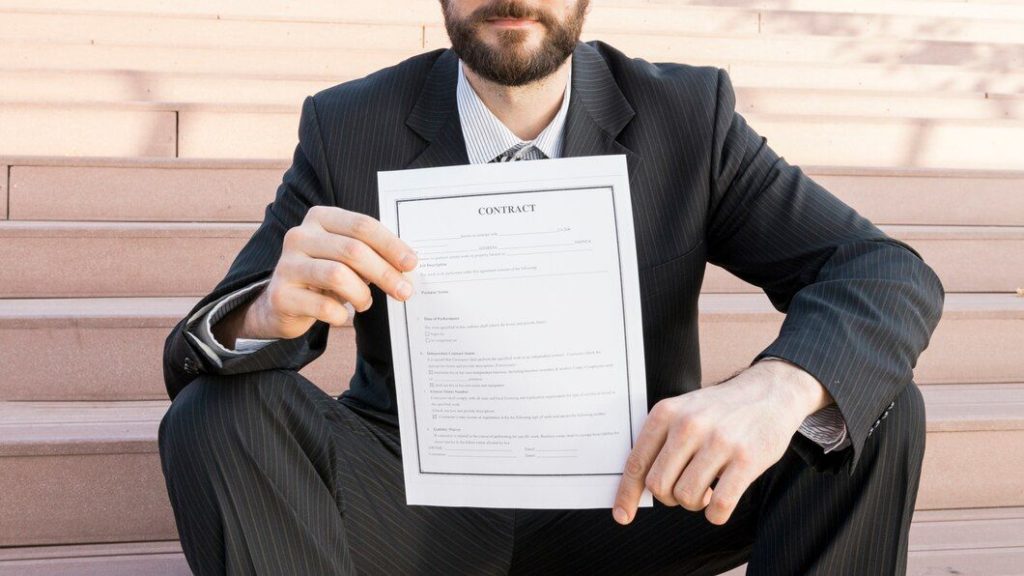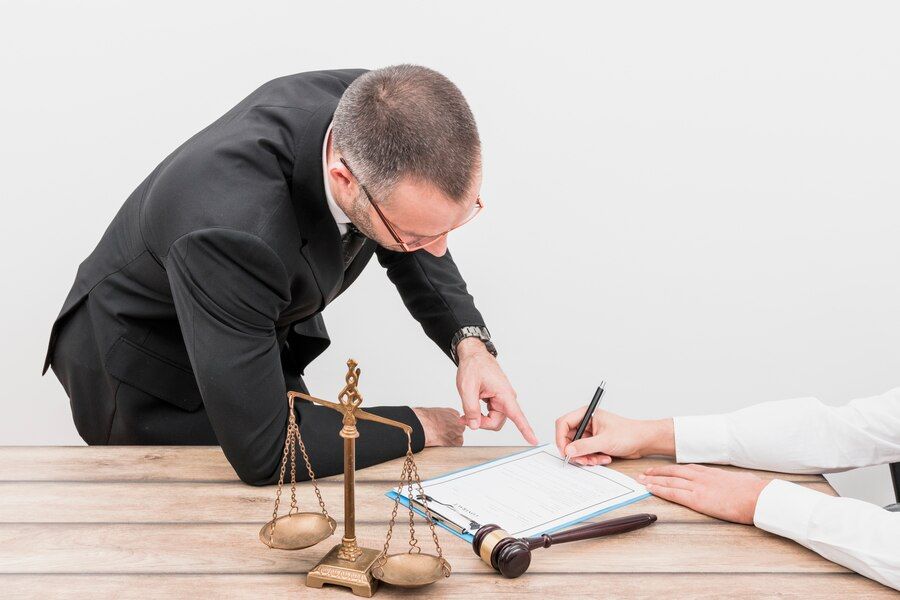
Losing a loved one is undoubtedly one of life’s most challenging experiences, and dealing with legal matters afterward can compound the stress and emotions. When a loved one passes away, their will should ideally provide a roadmap for the distribution of their assets and belongings.
However, what happens when suspicions arise about the authenticity of the will? In this comprehensive guide, we’ll delve into the intricate process of reporting a forged or invalid will) in Nevada, shedding light on the probate court system, the probate process, and the crucial steps involved in contesting a will’s validity.
What is a Forged Will
A forged will is a fraudulent document purportedly representing the final wishes of a deceased individual. It involves the deliberate alteration or creation of a false will with the intent to deceive beneficiaries, heirs, or the court. In Nevada, forging a will is a serious legal offense and can lead to criminal charges.
What to Do If You Suspect a Will Has Been Forged
If you suspect a will has been forged, it’s crucial to take immediate steps to protect the deceased’s wishes and ensure their estate is distributed correctly. Start by gathering any evidence that supports your suspicion, such as signature comparisons or witness statements. Consult a probate attorney experienced in contested wills to understand your legal options. Consider filing a caveat with the probate court to halt the probate process until the authenticity of the will is determined.
Your attorney can help you initiate legal proceedings if necessary, ensuring you meet all deadlines and requirements. Mediation can be a quicker and less adversarial way to resolve the issue, so explore this option if suitable.
If the case goes to court, attend all hearings and present your evidence to support your claim. Adhere strictly to all legal procedures and deadlines when contesting the will to avoid dismissal of your case. Lastly, seek support from loved ones or a counselor to help you cope with the stress and uncertainty of contesting a will.
Who is Liable
Liability for a forged will can extend to various parties involved in the creation or execution of the document:
Forger: The individual who intentionally creates or alters the will with fraudulent intent bears primary liability.
Accomplices: Individuals who knowingly participate in the forgery or assist the forger may also be held liable.
Executors or beneficiaries: If beneficiaries or executors benefit from the forged will, they may face legal consequences, especially if they were complicit in the forgery or failed to exercise due diligence in verifying the authenticity of the document.
Can We Seek Compensation
Victims of forged wills in Nevada may seek compensation through legal avenues, including:
Contesting the will: Initiate legal proceedings to challenge the validity of the forged will and seek distribution of assets according to the deceased’s true intentions or state laws of intestacy.
Civil lawsuits: File civil lawsuits against the responsible parties for damages incurred as a result of the forged will, such as lost inheritance or financial harm.
Criminal prosecution: Report the forgery to law enforcement authorities, leading to criminal charges against the perpetrators, which may result in restitution or other penalties.
Grounds for Contesting a Will
A will can be contested in Nevada on several grounds, including:
Forgery: If the will was signed by someone other than the testator (the person making the will) or if the signature was obtained through fraud or coercion.
Undue influence: If someone exerted excessive control over the testator, causing them to make changes to the will that they would not have otherwise made.
Lack of testamentary capacity: If the testator was not of sound mind, memory, or discretion when making the will.
Revocation: If the will was revoked by the testator before their death.
Step-by-Step Guide to Reporting a Forged Will
If you suspect that a will has been forged or tampered with, follow these steps to report it:
1. Gather Evidence
Collect any evidence that supports your claim, including:
Original documents or copies of the will, trusts, and other relevant documents
Witness statements or affidavits from people who can attest to the testator’s intentions or the circumstances surrounding the signing of the will
Expert opinions from handwriting or forensic document examiners
Any other relevant evidence that can help prove the will was forged or tampered with
2. Consult with an Attorney
It is crucial to consult with an experienced probate attorney in Nevada who has expertise in will contests and probate litigation. They can help you understand the legal process, assess the strength of your case, and guide you through the legal procedures.
3. File a Petition to Contest the Will
Your attorney will help you prepare and file a petition to contest the will with the appropriate Nevada probate court. The petition must state the grounds for contesting the will, including forgery, and provide supporting evidence.
4. Serve Notice on Interested Parties
Once the petition is filed, you must serve notice on all interested parties, including the personal representative of the estate, beneficiaries, and any other parties who may be affected by the outcome of the case.
5. Attend a Hearing
A hearing will be scheduled to determine the validity of the will. During the hearing, you will present your evidence and arguments to the court, and the other parties will have the opportunity to respond.
NRS 133.140: “The probate court determines and shall hear evidence and determine the validity of the will or the probate thereof.”
6. Seek Expert Opinion
If necessary, you may need to hire an expert witness, such as a handwriting analyst or forensic document examiner, to provide testimony on the authenticity of the will.
7. Follow Court Orders
Throughout the process, it’s essential to comply with all court orders and deadlines. Failure to do so may result in dismissal of your contest or other legal consequences.
Why You Need an Attorney When Contesting a Will
Contesting a will, particularly on the grounds of forgery or undue influence, can be a daunting legal process. While it’s possible to navigate this process without an attorney, here are some unique reasons why seeking legal representation can be highly beneficial:
Legal Strategy: An experienced probate attorney can devise a strategic approach to contesting the will, considering the specific circumstances of your case. They can analyze the evidence, identify weaknesses in the opposing party’s case, and develop a strong legal strategy to maximize your chances of success.
Complex Legal Requirements: Contesting a will involves meeting specific legal requirements and deadlines. An attorney can ensure all necessary documents are filed correctly and on time, avoiding potential pitfalls that could jeopardize your case.
Expertise in Evidence Gathering: Proving forgery or undue influence often requires gathering compelling evidence, such as expert testimony and documentary evidence. An attorney can help you navigate the complexities of evidence gathering, ensuring you have the necessary documentation to support your case.
Negotiation Skills: In some cases, it may be possible to resolve the dispute through negotiation rather than litigation. An attorney can represent your interests during negotiations, working to reach a favorable settlement that protects your rights and interests.
Courtroom Experience: If the case goes to court, an attorney’s courtroom experience can be invaluable. They understand courtroom procedures and can effectively present your case before a judge, increasing your chances of a successful outcome.
Emotional Support: Contesting a will can be emotionally draining, especially when dealing with the loss of a loved one. An attorney can provide emotional support and guidance, helping you confidently navigate the legal process.
Risk Mitigation: Contesting a will without legal representation can be risky, as you may not fully understand the legal implications of your actions. An attorney can help you assess the risks and benefits of contesting the will, allowing you to make informed decisions about how to proceed.

Suspect a Forged Will? Contact The Bourassa Law Group
When suspicions arise regarding the authenticity of a loved one’s will, it’s crucial to take prompt action to protect their wishes and ensure a fair distribution of their assets. By understanding the probate court process, gathering evidence, and enlisting the help of an experienced probate attorney, you can conquer the complexities and legal challenge of contesting a forged will with confidence.
If you suspect a will has been forged, don’t wait. Contact The Bourassa Law Group today for expert legal advice and guidance on contesting the will. Protect your rights and ensure your loved one’s wishes are honored.
FAQ
Q: What is a forged will?
A: A forged will is a valid legal document that has been fraudulently altered or created to misrepresent the intentions of the deceased.
Q: How can I tell if a will has been forged?
A: Signs of a forged will may include inconsistencies in signatures, unusual language or provisions in prior will, or the presence of unfamiliar witnesses.
Q: What should I do if I suspect a will has been forged?
A: If you suspect a will has been forged, gather any evidence supporting your suspicion and consult with a family member a probate attorney for guidance.
Q: How do I report a forged will?
A: To report a forged will, you should file a caveat with the probate court to halt the post probate petition process until the authenticity of the will is determined.
Q: What legal action can I take if a will is forged?
A: You can contest the will in probate court, providing evidence to support your family members claim of forgery. It’s advisable to seek legal representation for this process.
Q: How long do I have to contest a will?
A: The time limit to contest a will varies by jurisdiction, so it’s important to consult with a probate attorney promptly if you suspect forgery.




